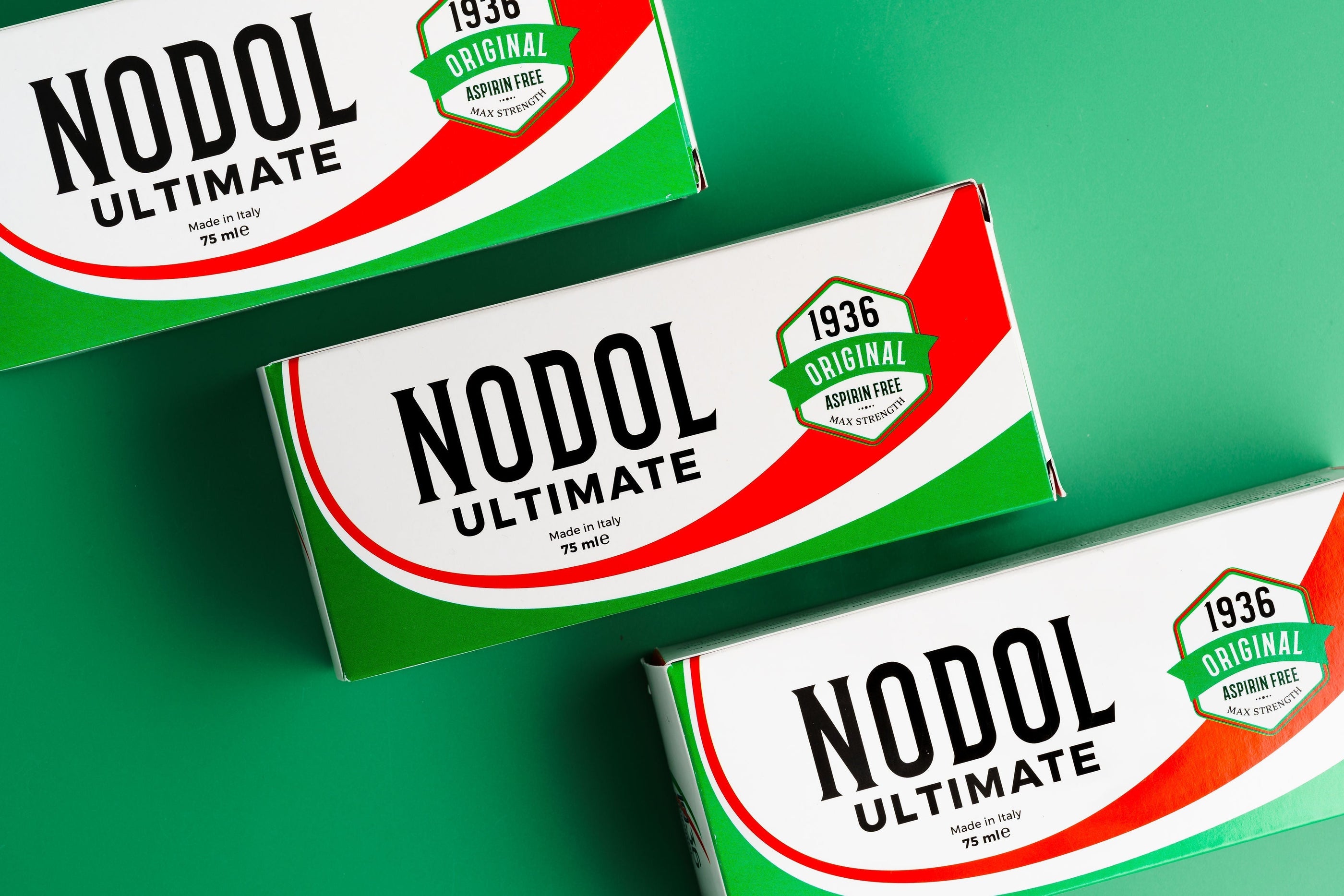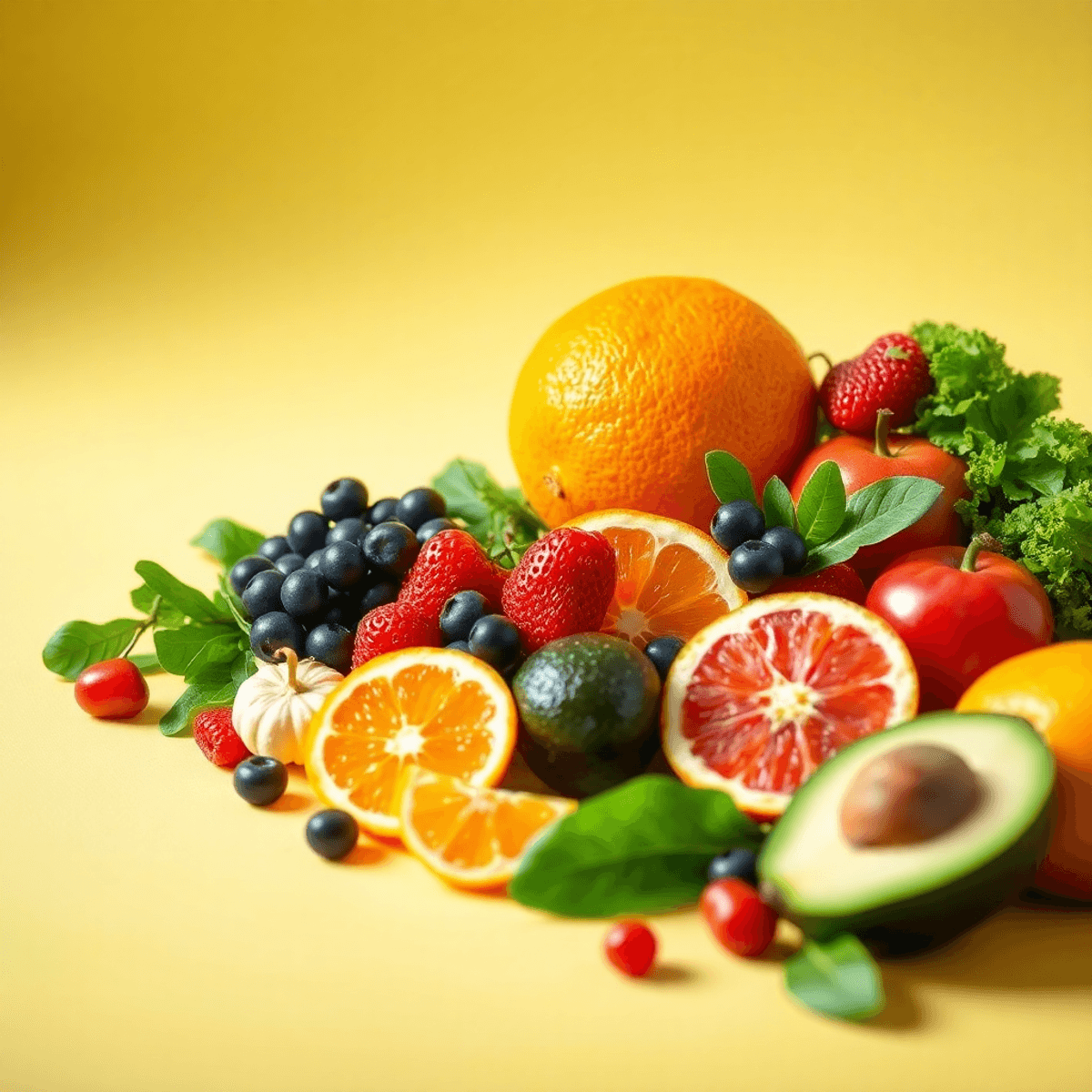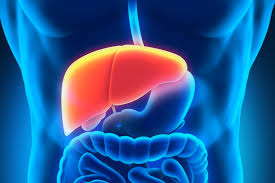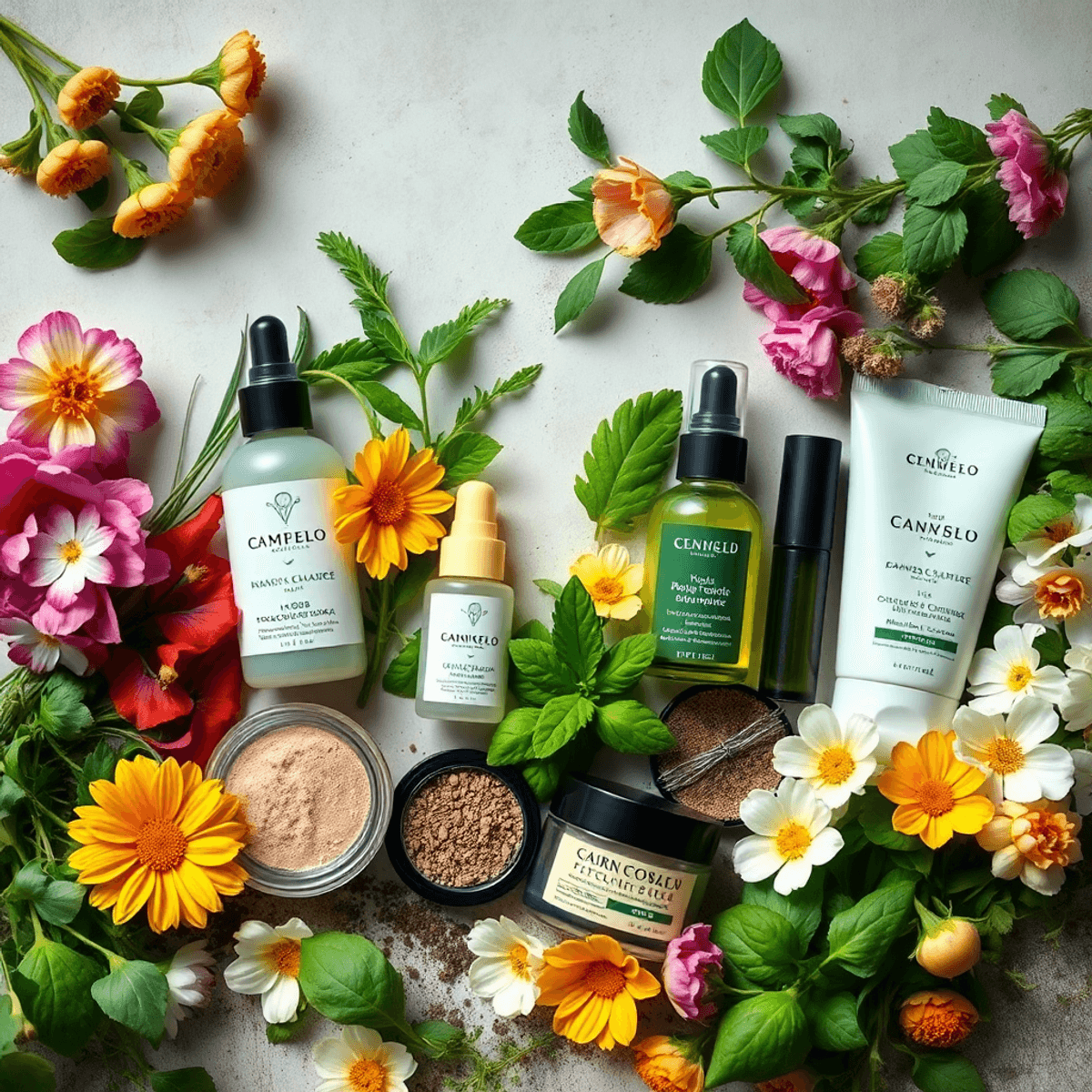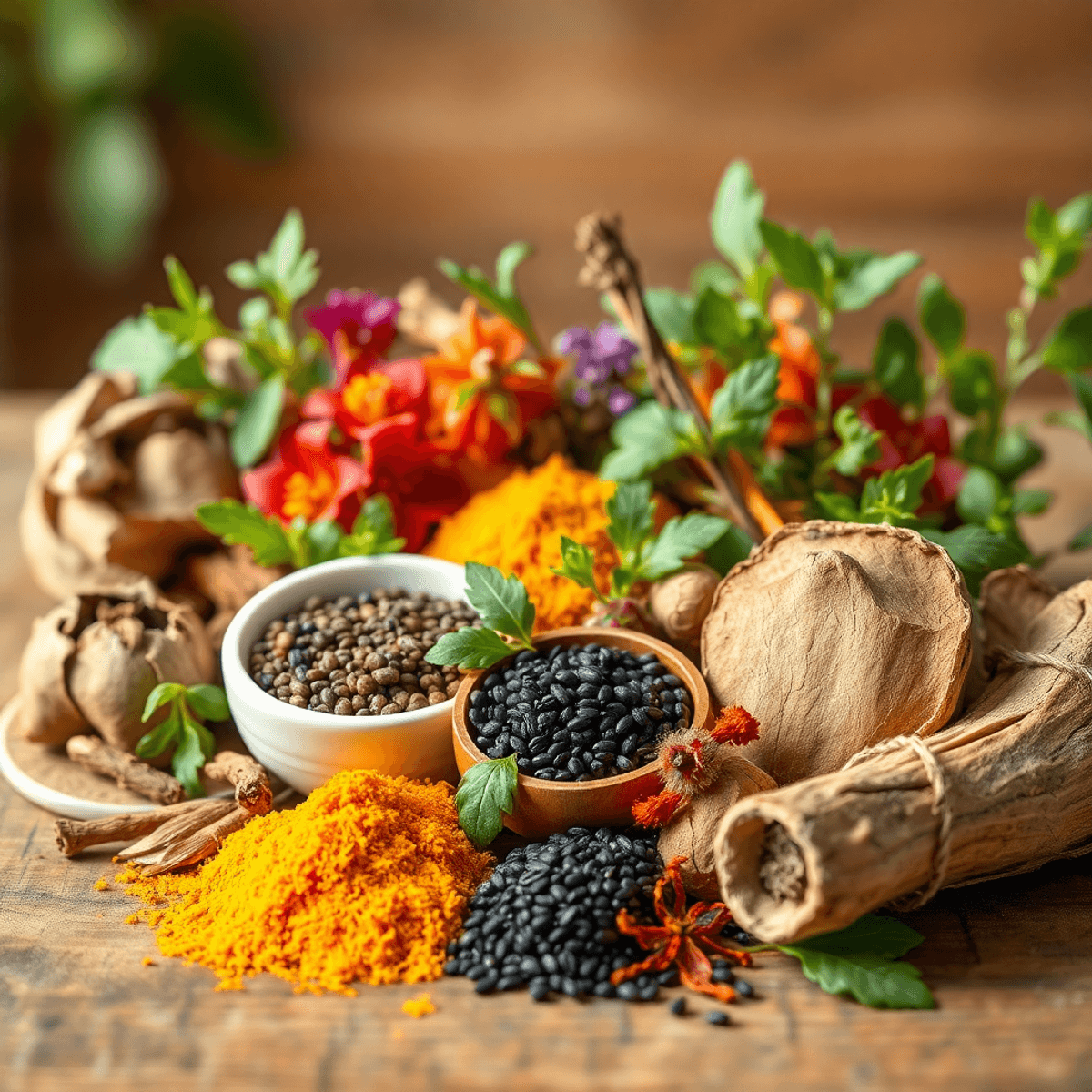Did You Know These Foods Can Boost Your Skin's Health?

Introduction
The connection between nutrition and skin appearance is undeniable. A healthy diet can keep your skin in better condition, offering a natural glow that no cosmetic product can replicate. Not all foods are created equal, though; some can significantly enhance skin health, while others might do more harm than good.
In this article, you will explore the best foods for skin repair and healing alongside those to avoid for optimal skin condition. We've curated insights from expert opinions and scientific research, crafting a comprehensive guide on how a balanced diet for good skin can truly make a difference.
- Discover which healthy foods for your skin are essential
- Learn about the impact of specific nutrients on your complexion
- Uncover practical dietary recommendations to keep your skin looking its best
Start learning how a thoughtful diet can elevate your skincare routine today. Additionally, if you're struggling with conditions like eczema or psoriasis, consider exploring specialised products such as our Eczema Cream and Body Wash that naturally help provide relief from such skin issues.
The Science Behind Diet and Skin Health
Understanding how nutrients influence skin function is essential for maintaining a healthy complexion. The skin, the body's largest organ, relies on various nutrients to support its structure and function. Key components such as collagen and elastin provide strength and elasticity, which are vital for youthful-looking skin.
The Role of Vitamins and Minerals
Vitamins and minerals play a crucial role in skin health. Vitamin C is particularly important for collagen production, helping to maintain skin's firmness and reduce wrinkles. Similarly, vitamin E acts as an antioxidant, defending against free radical damage that leads to ageing. Minerals like zinc are involved in healing processes and can help manage acne by regulating oil gland activity.
How Diet Affects Skin Conditions
Research has revealed a strong connection between diet and skin conditions. For instance, diets high in refined sugars and unhealthy fats are linked to increased inflammation, which can exacerbate acne or other inflammatory skin issues. Conversely, consuming foods rich in antioxidants—like fruits, vegetables, and nuts—can mitigate oxidative stress and promote clearer, healthier skin.
These insights underscore the importance of a nutrient-dense diet in supporting both the structural integrity and overall health of your skin. Engaging with these dietary principles can lead to noticeable improvements in your skin's appearance and resilience.
Essential Nutrients and Foods for Healthy Skin
Understanding the role of specific nutrients can guide you in selecting the best foods for healthy skin. Among these, vitamin C, beta carotene, and omega-3 fatty acids are key players.
Vitamin C: The Collagen Booster
Vitamin C is crucial for collagen production, a protein that helps maintain skin's firmness and elasticity. Its antioxidant properties also aid in wrinkle reduction by protecting skin cells from damage. Incorporating vitamin C-rich foods into your diet can enhance your skin's appearance. Excellent sources include:
- Citrus fruits like oranges and grapefruits
- Strawberries
- Broccoli
Beta Carotene: For a Vibrant Complexion
Foods high in beta carotene contribute to a healthy complexion by transforming into vitamin A in the body, which is essential for skin repair and maintenance. Consuming beta carotene-rich foods can lead to a natural glow. Consider adding these to your meals:
- Carrots
- Sweet potatoes
- Bell peppers
Omega-3 Fatty Acids: Enhancing Elasticity
Maintaining skin elasticity is critical for youthful-looking skin. Omega-3 fatty acids help achieve this by reducing inflammation and preserving cell membranes. Foods packed with omega-3s are invaluable for anyone aiming to improve their skin health:
- Fatty fish such as salmon and mackerel
- Walnuts
- Flaxseeds
Incorporating these nutrient-dense foods into your daily routine not only supports clear skin but also contributes to overall well-being by providing essential nutrients that promote optimal skin health.
Best Foods for Skin Repair and Healing
Berries such as strawberries and blueberries are known for their high antioxidant content. These fruits are packed with vitamins and nutrients that help fight against free radicals, which can cause skin ageing and damage. Eating berries regularly can support the repair of skin cells, resulting in a healthier and more youthful appearance.
Citrus fruits, including oranges, lemons, and grapefruits, are excellent sources of vitamin C. This important nutrient is necessary for collagen production, which helps maintain skin firmness and structure. Adding citrus fruits to your diet can improve your skin's ability to heal from injuries or sun damage.
Including these foods in your diet can greatly benefit your skin's healing and rejuvenation process. By focusing on berries and citrus fruits, you're giving your body the resources it needs to keep your skin healthy.
Vegetables That Enhance Skin Tone
Incorporating the right vegetables into your diet can significantly enhance your skin's appearance. Leafy greens like spinach and kale are rich in essential nutrients that boost overall health and improve skin tone. These vegetables are packed with vitamins A, C, E, and K, which promote cell renewal, reduce inflammation, and help maintain a glowing complexion.
Colourful vegetables high in phytonutrients also play a crucial role in skin health. Bell peppers, for instance, are not only vibrant in colour but also rich in vitamins C and A. These nutrients support collagen production and protect against oxidative stress, which can lead to premature ageing.
- Leafy Greens: Spinach and kale provide antioxidants that combat free radicals and improve skin elasticity.
- Colourful Vegetables: Bell peppers contain phytonutrients that support healthy skin tone and texture.
By including these vegetables for better skin in your meals, you can naturally enhance your complexion while supporting overall wellness.
Whole Grains and Their Impact on Skin
Whole grains have many benefits, especially for your skin. Foods like quinoa and brown rice, which are full of nutrients, contain important B vitamins. These vitamins are essential for keeping your skin healthy as they promote cell regeneration and assist in repairing damaged skin tissue.
- Quinoa: A complete protein source that helps in skin repair.
- Brown Rice: Rich in antioxidants that combat oxidative stress.
Adding whole grains to your meals not only improves your overall health but also helps you achieve a glowing and strong complexion.
Foods to Avoid for Optimal Skin Condition
When aiming for healthier skin, knowing what to avoid is as crucial as knowing what to consume. Certain foods can have adverse effects on your skin's appearance and condition.
1. Processed Sugars
These are notorious for their role in increasing inflammation within the body. Elevated sugar levels can lead to the production of advanced glycation end products (AGEs), which damage collagen and elastin, resulting in sagging skin and wrinkles. Additionally, processed sugars may exacerbate acne by increasing insulin levels that trigger excess oil production.
2. Trans Fats
Commonly found in fried and baked goods, trans fats contribute to premature ageing. They cause inflammation throughout the body, compromising skin elasticity and leading to dullness.
3. Excessive Dairy Consumption
While dairy can be a part of a balanced diet, excessive intake is linked with acne development due to hormones present in dairy products that may disrupt your body's hormonal balance.
Avoiding these harmful foods can be a significant step towards maintaining better skin health through a healthy diet.
General Dietary Recommendations for Better Skin
Achieving healthier skin involves more than just topical treatments; it requires a comprehensive approach, including a balanced diet rich in whole foods. Incorporating fruits, vegetables, and lean proteins into your meals can significantly improve skin health. Here's how you can plan your diet for better skin:
1. Prioritise Fruits and Vegetables
Aim to fill half your plate with colourful produce. These foods are packed with antioxidants that protect against oxidative stress and promote a radiant complexion.
2. Include Lean Proteins
Options like chicken, turkey, and tofu provide the necessary building blocks for collagen production, supporting skin structure and elasticity.
3. Opt for Whole Grains
Foods such as quinoa and brown rice offer B vitamins essential for maintaining healthy skin cells.
To avoid processed foods, consider preparing meals at home where you control the ingredients. Planning meals ahead ensures you're consuming nutrient-dense options regularly. By focusing on these dietary practices, you'll be well on your way to achieving vibrant and youthful-looking skin.
Conclusion
Embracing skincare through diet can lead to a noticeable improvement in your skin's health and appearance. A healthy diet fuels your body with the essential nutrients needed for maintaining skin elasticity, reducing wrinkles, and promoting a glowing complexion.
By incorporating nutrient-rich foods such as fruits, vegetables, whole grains, and healthy fats into your meals, you are not just nourishing your skin but also enhancing overall well-being.
Take action today—start integrating these dietary recommendations into your daily routine for healthier, more resilient skin. The transformation begins with the choices you make at each meal.
FAQs (Frequently Asked Questions)
How does nutrition impact skin health?
Nutrition plays a vital role in the appearance and health of your skin. Various nutrients influence skin function, helping to maintain its structure and resilience.
What vitamins and minerals are essential for skin health?
Vitamins and minerals such as Vitamin C, beta carotene, and omega-3 fatty acids are crucial for skin health. They support collagen production, enhance skin elasticity, and contribute to a vibrant complexion.
Which foods should I eat for better skin repair?
Foods rich in antioxidants, like berries (strawberries and blueberries), can significantly aid in skin repair and healing. Incorporating a variety of colourful fruits and vegetables is also beneficial.
What types of foods should I avoid for healthier skin?
To promote optimal skin condition, it's advisable to avoid processed sugars, trans fats found in fried foods, and excessive dairy consumption, as they can increase inflammation and negatively affect your skin.
What general dietary recommendations can improve my skin's appearance?
To achieve healthier skin, prioritise filling half your plate with fruits and vegetables, include lean proteins like chicken or tofu, and opt for whole grains such as quinoa or brown rice for their essential B vitamins.
How does Vitamin C benefit the skin?
Vitamin C is critical for collagen production, which helps maintain the structure of the skin. It acts as an antioxidant that protects against damage from UV exposure and pollution.



